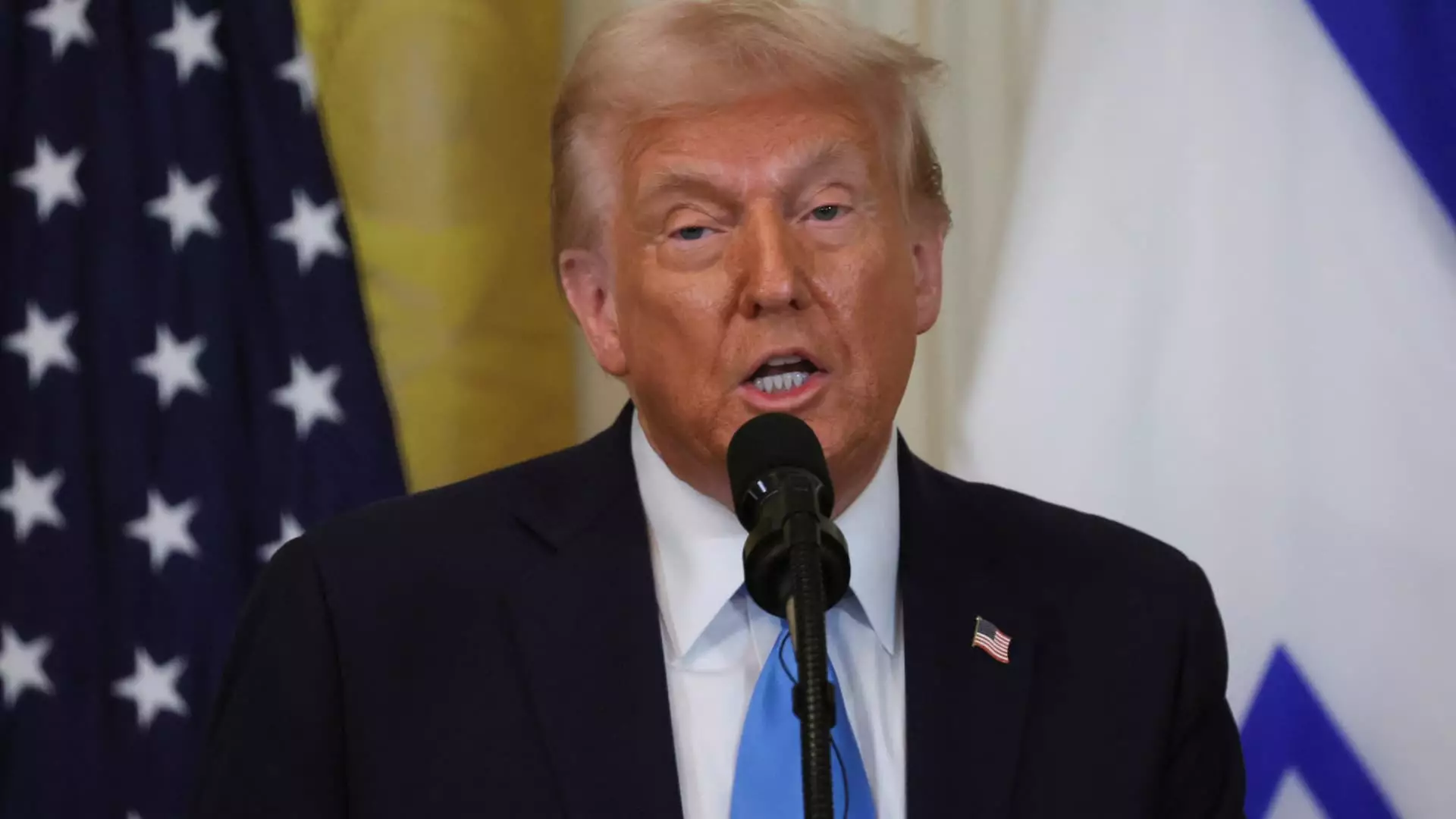The recent statements made by former President Donald Trump regarding the Gaza Strip have raised eyebrows across diplomatic circles and among the global populace. Following a joint news conference with Israeli Prime Minister Benjamin Netanyahu, Trump suggested that the United States should completely take over the territory, with the intention of transforming it into a prosperous region, potentially even dubbing it “the Riviera of the Middle East.” However, the implications of such remarks require careful scrutiny, especially considering the historical and political context of the Israeli-Palestinian conflict.
Trump’s proposal illuminates a fundamental aspect of his approach to politics: the flair for grandiosity that often overshadows practical realities. His assertion that the U.S. will “own” Gaza is particularly jarring, especially given the volatile situation following the devastating war ignited by Hamas’s attacks on Israel on October 7, 2023. At a moment when the people of Gaza—two million living in dire conditions—are facing unprecedented challenges, Trump’s prescription appears to lack sensitivity and depth. The regional geopolitical landscape is fraught with complexities that cannot be simplified by a bold assertion of ownership.
His vision of transforming Gaza into a developed territory contrasts sharply with the ongoing humanitarian crisis. The destruction of infrastructure, combined with the psychological scars left on the survivors, cannot be overlooked. The concept of the United States swooping in with a reconstruction plan may be enticing to some, but it is fraught with challenges around sovereignty and the ingrained aspirations of the Palestinian people. Trump’s statement regarding the “dismantling” of what he calls “dangerous unexploded bombs” highlights an apparent lack of understanding of the historical significance of Gaza for its people.
Trump’s insistence that Palestinians should leave Gaza and resettle in neighboring countries such as Jordan and Egypt raises critical questions about international law, human rights, and the sovereignty of those nations. His comments suggest a kind of displacement that echoes colonial paradigms, as if the indigenous population can simply be relocated as a solution to a complex problem. The historical grievances of the Palestinian people cannot be brushed aside simply to accommodate an American-led redevelopment initiative.
Moreover, Trump’s expectation that regional leaders in Jordan and Egypt “will open their hearts” to thousands of additional refugees are overly optimistic, if not naïve. Both countries have already been stretched thin with the influx of refugees from past conflicts, and their leaders are likely to respond with practical concerns about how additional refugees might destabilize their own social and economic environments.
While Trump’s brashness could appeal to political extremes both at home and abroad, the practicality of his proposal seems slim. Netanyahu’s response to Trump’s suggestion—endorsing it as a potential historic change—raises alarm bells about the nature of such partnerships. The Israeli prime minister has every interest in presenting potential solutions to the Gaza situation, yet to fully support a U.S. takeover negates the delicate balance of grassroots movements for Palestinian autonomy and self-determination.
Furthermore, Trump’s rhetoric clashes with the established international consensus on a two-state solution, which strives for a peaceful resolution respecting the rights of both Israelis and Palestinians. His remarks appear to sideline local inputs and perspectives, emphasizing an imperialistic approach rather than a collaborative one.
While the idea of rejuvenating Gaza under U.S. management may sound appealing to some, it is paramount to recognize the deep-seated issues at play. Short-term fixes will not remedy long-standing grievances. The key to sustainable peace in Gaza lies not in grand declarations of ownership but in recognizing the dignity of its people and fostering an environment where their voices are heard and valued. Moving forward, the diplomatic community would do well to engage in thoughtful dialogue that promotes understanding and solidarity rather than escalation and division.


Leave a Reply